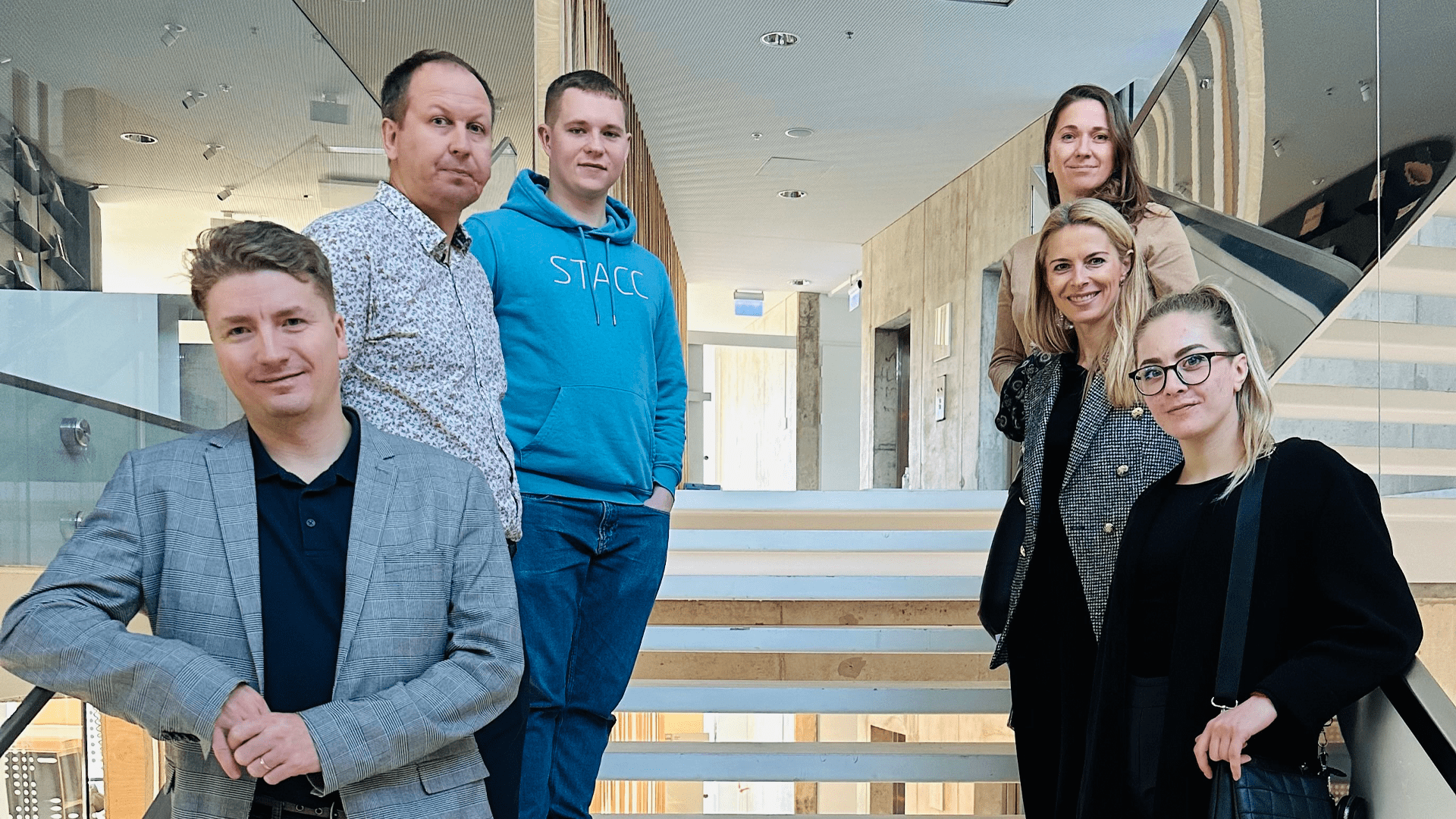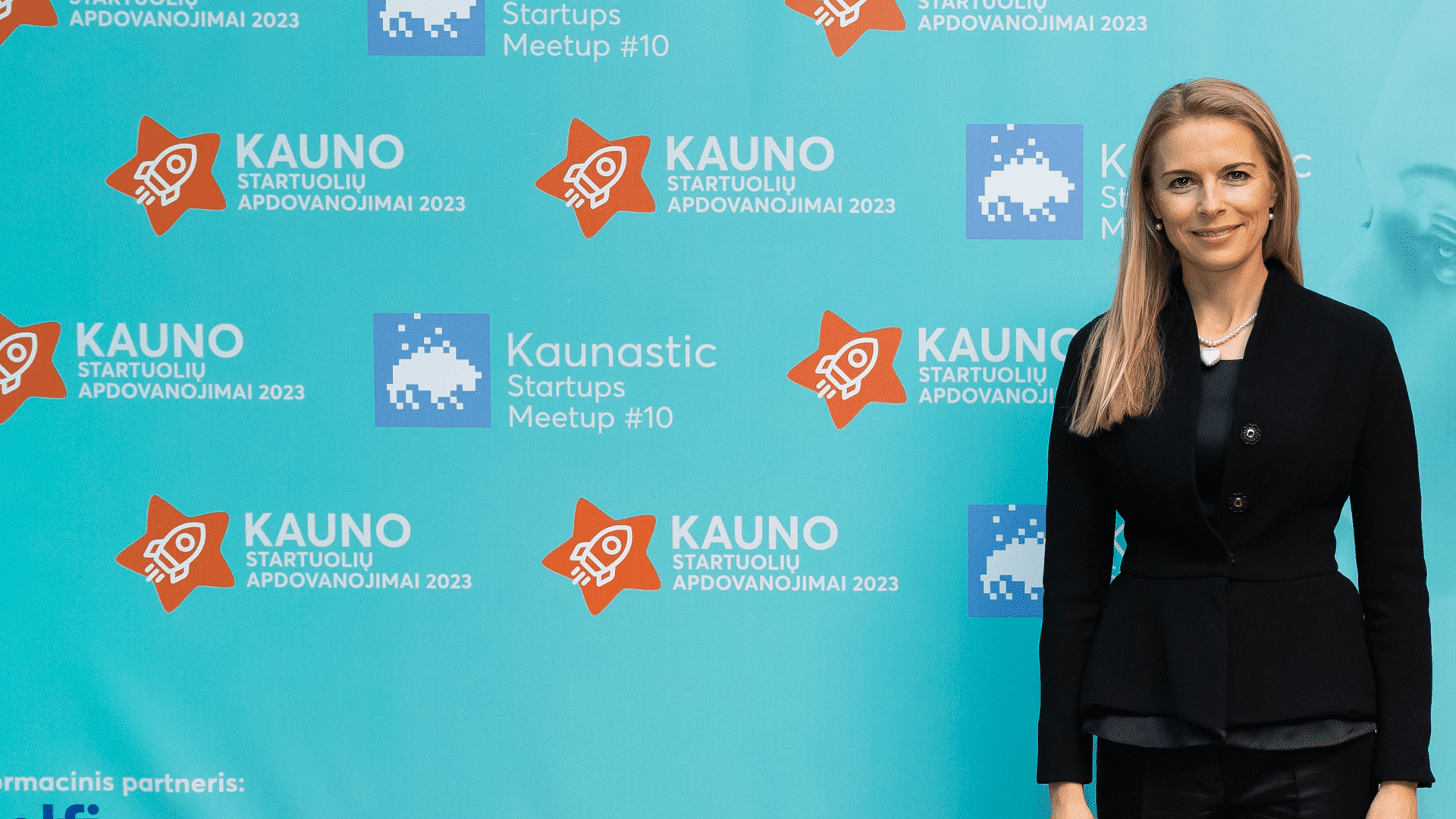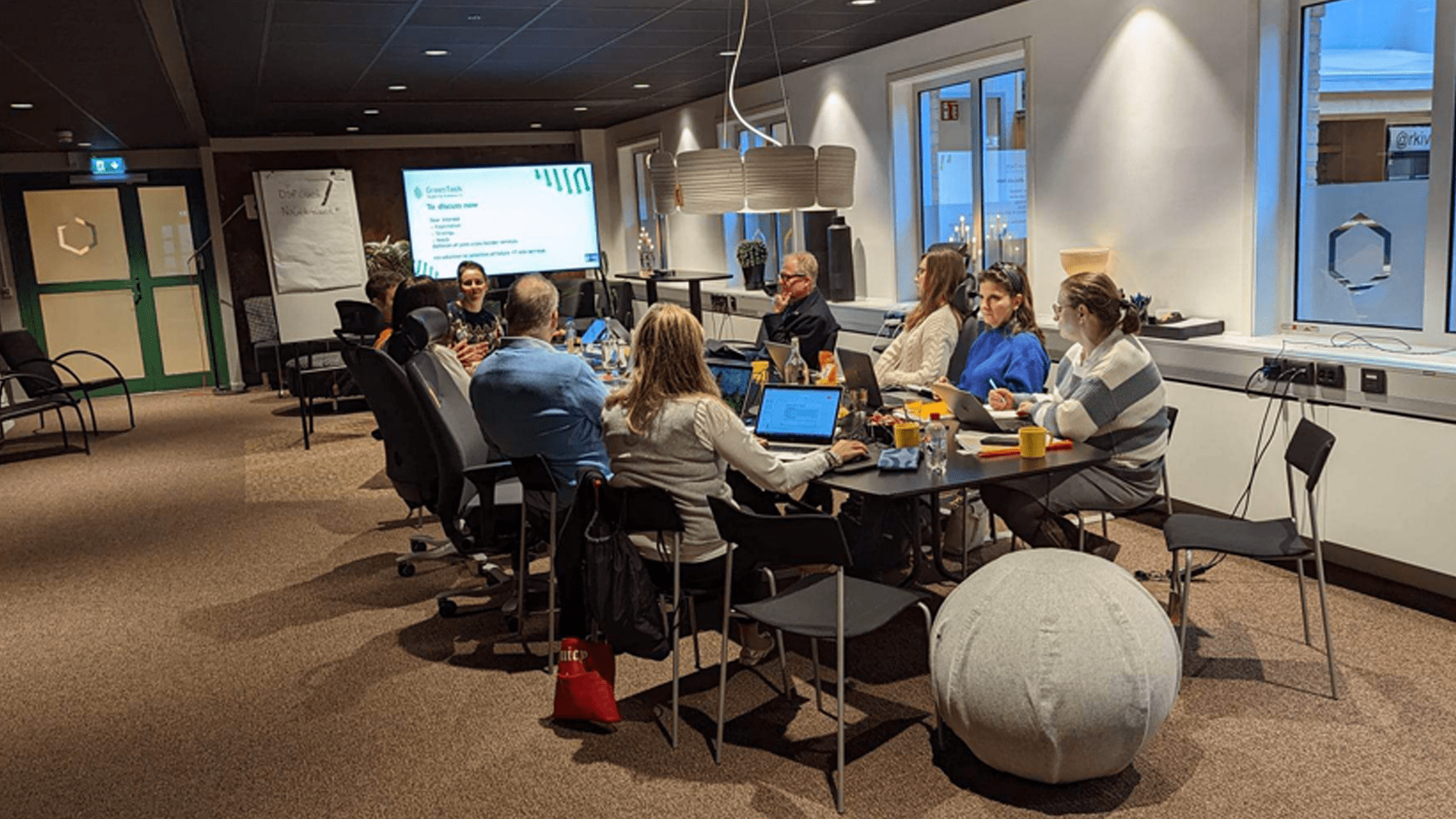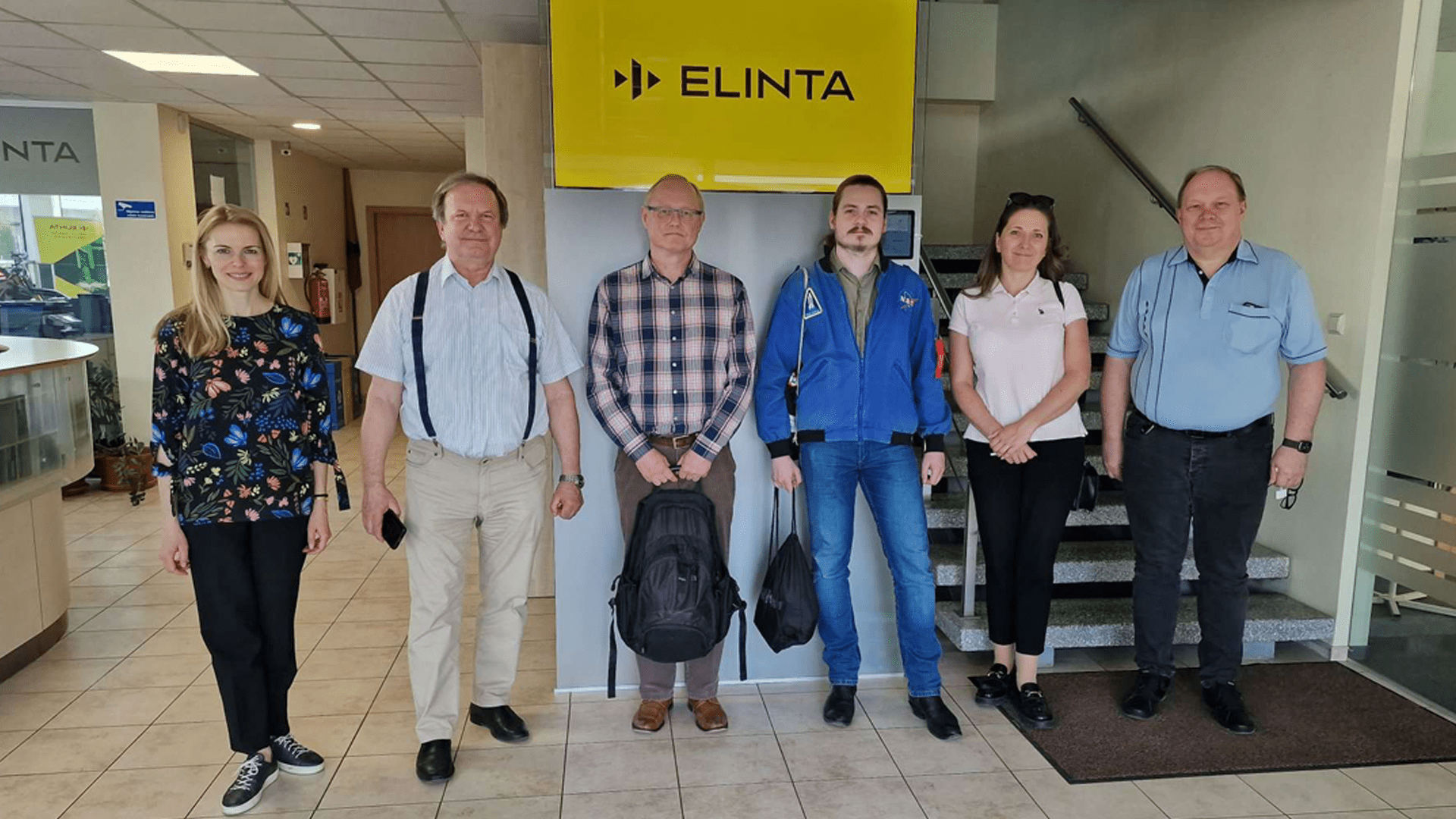In an era where sustainability is not just a buzzword but a strategic imperative, embracing green technology has transformed from an option to a necessity for businesses and innovators aiming to thrive in a rapidly evolving global landscape. As the need for cooperation, inclusive ecosystems, and community building increases, their importance is set to grow even more in the future.
One of the most effective ways to foster cooperation, share good practices, forge new connections, and explore new markets is through cluster exchange programs. These programs offer significant benefits to all players in the Greentech sector—from clusters to SMEs, and host organizations. This is evidenced by the results of the project ‘Green Tech Clusters for Excellence 2.0.
Cross-border cooperation – way to the development of all GreenTech sector
Cross-border cooperation between greentech clusters in Europe not only presents numerous opportunities and benefits for individual Small and Medium Enterprises (SMEs) in the green sector, but it also promotes the overall development and growth of the Greentech sector across borders.
Five EU countries such as Finland, Sweden, Estonia, Lithuania, and Poland joined the excellence of green tech clusters together to create a cross-border strategic partnership, implementing the ClusterXChange program.
Acting as intermediaries, experienced cluster management organizations from three different European regions (Nordic, Baltic, and Central Europe) guided local companies interested in green transformation to a suitable partner with the requisite competence and experience in implementing specific services.
Science parks, such as Tallinn Science Park Tehnopol (Estonia), Dalarna Science Park (Sweden), Green Net Finland (Finland), Tech-Park Kaunas (Lithuania), and Poznan Science and Technology Park (Poland) performed the role of sharing their strengths with the other clusters and in return learned from consortium partners to develop their services and create new ones.
By establishing connections with other similar organizations, clusters could create a dynamic platform for exchanging best practices and innovations. Exposure to different markets and the exchange of ideas contributed to the overall growth and success of the host organizations in the global business landscape.
ClusterXChange program – from broader horizons to joint projects
According to Jurgita Šarkienė, director of the Innovation and Entrepreneurship Department at Tech-Park Kaunas in Lithuania, the involvement of host organisations in developing national and international networks through the ClusterXChange program offered a range of values and opportunities.
“First of all, it allowed host organizations to broaden their horizons, encouraged networking and cooperation with other organizations, and facilitated the development of international partnerships. The program also allowed participants to gain valuable information about other countries’ markets, to get an in-depth insight into innovation needs and trends in other countries, and to share experiences and best practices with other organizations”, explains Jurgita Šarkienė. Activities also provided an opportunity to increase the visibility of the organization, its services, and its products in the relevant communities. And most importantly, it led to the initiation of new projects.
One of the ClusterXChange program’s participants said: “During the ClusterXChange program, we established a strong connection with one organization that shared the same passion in the greentech area. We realized that we have a lot of common goals and challenges, so we could benefit from each other’s experiences and expertise. We are now working together on developing future initiatives and creating “Mid-Sweden GreenTech”, a platform for collaboration and innovation in sustainable technologies”.
Peer-to-peer learning – the way to enhance your cluster excellence
The main objective of the project GreenTech 2.0 is to enhance the collaboration of cluster organizations through learning from each other and joint activities between clusters (C2C). Conducting peer reviews benefited all participating partners, individually and collectively. Connecting with other Green Tech organizations, learning best practices, and sharing innovations have thus been a powerful way to improve their cluster excellence.
Through peer-to-peer learning, clusters could receive constructive feedback from industry counterparts, leading to continuous improvement and refinement of their strategies. The participants visiting organizations could get an insight into their management and at the same time provide their feedback concerning strengths, opportunities, and recommendations for improvement to the host organization.
Katarzyna Wlaź from Poznan Science and Technology Park (Poland), said: “Peer Review conducted with other organizations, engaging in both self-assessment of our operations and sharing best practices with other partners in cluster management, innovation, communication, etc., provided an excellent opportunity to elevate the excellence of our Park’s activities and its cluster”.
Representatives of Dalarna Science Park (Sweden) remarked that the peer review process helped them to strengthen their position in the region. The feedback from the peer review convinced them to continue their strategy to improve collaborations, expand the cluster to include more partners and initiate partnerships with several large corporations.
“We got a lot of ideas and new perspectives from all project partners. This has given us important strategic input for action during 2023”, said Angelica Ekholm, CEO of Dalarna Science Park.
All clusters received useful recommendations during peer reviews, that can be shared with policymakers and other clusters, to enhance their activities. For example, Tallinn Science Park Tehnopol (Estonia) Greentech Cluster has changed its strategy based on the peer review that was conducted on them.
Susanna Nuolimaa-Fere from Green Net Finland (Finland), added: “Fundamental self-assessment, face-to-face discussions with peers from other clusters, and feedback sparked a few developmental ideas and we think that those will benefit our cluster management office team as well as our cluster members”.
Innovative solutions and knowledge for entering different markets
This extensive experience was a great opportunity for startups to discover the green tech landscape in different countries. The program allowed participants from SMEs to find innovative solutions to upgrade business, products, and services, to create new business opportunities and get involved in new innovative projects, as well as gain knowledge of foreign markets and cultures.
“The project exceeded expectations. The benefits we gained and the contacts we made showed that it was worth investing in. During the visit, we established contacts with companies that are interested in cooperating with us. We’re staying in touch with a few of them, and we plan to continue this business-related friendship”, said a participant from Lithuania, Marius Krajauskas, director of a startup “Pixinn”, who visited Dalarna Science Park in Sweden.
Dimitri Ionescu from “LightMirror” (Poland), who visited organizations in Finland continued by adding that the ClusterXChange program was a huge success – it connected learning, meeting new people, and focusing on sustainability.
“It was very beneficial, enabling us to connect with numerous SMEs. We also initiated dialogues that could foster future partnerships. We gained insights into the green sector and corporate culture, enhancing our understanding of circular economy practices. The trip led to multiple collaboration opportunities and broadened our perspective on international business strategies. It allowed us to establish valuable business contacts for our company and cluster partners, fostering an environment for growth and synergy”, said Dimitri Ionescu.
About the GreenTech 2.0
GreenTech 2.0 is the European network that unites five Bronze-awarded clusters from Estonia, Lithuania, Sweden, Finland and Poland.
The project aims to act as an enabler and multiplier of collaborations by initiating matched short-term exchanges via the ClusterXChange program. It empowers Green Tech Clusters to support SMEs in exploiting growth opportunities, service innovation, resource-efficient solutions, market traction, finding investments, and internationalization.
The GreenTech 2.0 project is funded under the European Union COSME program, based on grant agreement number 101037914. The project’s website is greentech-project.eu.
Read the orginal article: https://www.eu-startups.com/2024/01/why-should-we-invest-in-greentech-cluster-exchange-programs-best-practices-and-lessons-learned-sponsored/








